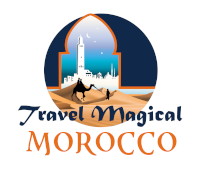Visiting Morocco is not just stepping into another country – it’s entering another world. A world full of beauty, surprises, and contrasts. In Part One of our guide to social customs in Morocco, we shared what to do to connect respectfully with locals. In this second part, we focus on what not to do – not to scare you off, but to help you embrace the experience with open eyes, an open heart, and hopefully a smile. Because if there’s one thing to know before you arrive: anything can happen in Morocco. And that’s exactly where the magic lies.
1. Don’t Be in a Rush – Time Works Differently Here
In Morocco, clocks tick differently. Appointments start when they start. Buses leave when they leave. And people take their time. You’ll hear phrases like beshwiya (slowly) and inshalah (god willing) all the time. They reflect a cultural rhythm that doesn’t bend to urgency. Try to let go of your own timeline – frustration only builds walls. A little patience opens doors (and conversations).
2. Respect Local Norms and Values
Morocco is modern and traditional, urban and rural, open and reserved – often all at once. Respecting local norms means being mindful of clothing, gestures, and the way you interact. It’s not about losing your identity, but showing that you see where you are. What may be normal or harmless in your home country could be inappropriate here. Observe, listen, and adapt.
3. Be Aware of Public Affection Norms
Affection is part of Moroccan life – you’ll see friends of the same gender walking arm in arm or holding hands. But romantic or sexual affection in public between men and women is not culturally accepted, even for married couples. Avoid kissing, hugging, or intense physical closeness in public. When in doubt, look around and follow the local vibe.
4. Show Respect – Especially to the Respected
Respect is woven deeply into Moroccan society. Elders, parents with small children, and figures of authority like police officers or staff at government offices receive visible deference. If someone gets to the front of a line, it might not be rudeness – it could be a cultural norm of giving priority. Speak calmly, use polite forms, and stay aware of context.
5. Always Ask Before You Take a Photo
Photography is not just a casual act in Morocco – it touches on personal boundaries, privacy, and even dignity. Always ask permission before taking a photo of a person, especially women, elders, and children. In rural areas or conservative settings, uninvited photography can cause discomfort or offense. If someone says no, respect it without question. A camera doesn’t give you the right to someone’s image.
If someone agrees, especially in traditional dress or public places, it’s common to offer a small tip (a few dirham) as a gesture of thanks. It shows respect and appreciation.
6. Don’t Bargain Like It’s War
Yes, haggling is part of the culture. But it’s not about winning. It’s about connection, humor, and mutual respect. Bargain with a smile, enjoy the exchange, and remember: you’re often negotiating over amounts that are meaningful to the seller but minor to you. Walk away if it doesn’t feel right, but don’t turn it into a fight.
7. Keep Perspective: You’re Privileged Just by Being Here
If you’re visiting Morocco, you already have the means to travel. Many people here do not. Poverty is visible, and some may approach you asking for money or trying to sell something. In larger cities, you may also encounter scammers or fake beggars. It’s best not to give money to children – it can encourage dependency and exploitation.
That said, if you feel someone genuinely needs help, it’s okay to respond with kindness. Trust your instincts, and do so respectfully. You don’t have to give, but you can always say no with dignity.
8. Don’t Assume Everyone Wants Something from You
Not every friendly hello is a scam. Hospitality is a core Moroccan value, and many people are genuinely happy to see you. If someone offers help or says “welcome to Morocco!”, it’s often sincere. If you’re not interested in something, a gentle “no, thank you” with a smile is almost always respected.
9. Use a Few Words – It’s Always Appreciated
A little goes a long way. Learn a few words in Darija (Moroccan Arabic) or French. Shukran (thank you), salaam alaikum(peace be upon you), bslama (goodbye). These small efforts open hearts. Locals will notice and appreciate that you made the effort to connect.
10. Bring Your Sense of Humor (and a Smile)
Things won’t always go as planned. That’s okay. In fact, that’s often when Morocco shows you its best side. When something goes wrong, someone might unexpectedly show up to help. When plans fall apart, something more interesting might happen. Smile. Laugh. Let go. Humor connects people, breaks tension, and turns mishaps into stories.
Final Thought: Step Into the Experience
Morocco is not here to meet your expectations. It invites you to leave them at the door. It is rich, layered, unpredictable, and alive. The more you respect its rhythms and people, the more the country opens up to you. So take a breath, let go of control, and step into the experience. Magic awaits.
Want to dive deeper? Read Part One: Social Customs in Morocco – How to Connect Respectfully
